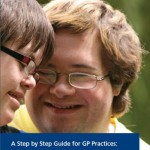
Elena Marcus appraises a recent meta-analysis of screening for bipolar spectrum disorders, which concludes that the MDQ and HCL-32 tools are supported by more evidence than the BSDS tool.
[read the full story...]
Elena Marcus appraises a recent meta-analysis of screening for bipolar spectrum disorders, which concludes that the MDQ and HCL-32 tools are supported by more evidence than the BSDS tool.
[read the full story...]
Down syndrome is the most common cause of learning disability in the UK and life expectancy has shown a dramatic increase in the last fifty years. However, people with Down syndrome face significant health issues.
In this blog, GP Matt Hoghton looks at a recent clinical review published in the BMJ, which provides advice and guidance on managing care and support for people with Down syndrome.
[read the full story...]
Josephine Neale blogs about a systematic review of screening tools for anxiety disorders, which concludes that the GAD-7 and PHQ instruments are appropriate for use in primary care.
[read the full story...]
Depression in teenagers is a significant problem, with serious and potentially fatal consequences. Estimates of how many teenagers have depression at any one time vary between countries, but overall about 4-5% of mid to late teens worldwide are thought to experience clinical depression every year (Thapar et al, 2012). Much of the current knowledge of [read the full story…]

On 14th May 2010, when Kenneth Clarke returned to the Ministry of Justice, the prison population in England and Wales was 85,009. When he had previously been Home Secretary in 1992-93, the average prison population had been 44,628 (Prison Briefing 2010). This represents a 90% increase in a period when crime rates were generally falling. The [read the full story…]

November is Mouth Cancer Awareness month here in the UK and around 6,500 cases are diagnosed a year. Mouth cancer is the 6th commonest cancer worldwide. In India, Sir Lanka and Pakistan it is the most common cancer for men and is responsible for 30% of all new cancer cases. Tobacco use, alcohol consumption, betel [read the full story…]

Alcohol misuse is recognised as one of the major health care issues in the US. Specifically, alcohol misuse is ranked third in causes of preventable deaths (after tobacco and obesity) affecting 30% of the population. Alcohol dependence has 4% prevalence in the US, but hazardous drinking patterns are believed to be evident in 21% of [read the full story…]

Roughly 33% of stroke sufferers also develop depression at some point. This may be an under-estimate of the problem, as depression is difficult to detect in people with poor physical health. If missed, depression can led to reduced quality of life, increased disability and a worsening of physical symptoms. There are a whole host of [read the full story…]

Life after cancer diagnosis and treatment is full of uncertainties for the patients and their caregivers. The possibility of cancer returning is hard to dismiss at least in the first few years after the end of treatment. Life has often changed in many imperceptible and subtle ways for people who have undergone cancer treatment, as [read the full story…]

Today we feature another guest blog from Professor Simon Hatcher’s excellent blog. We’ll be posting one blog every month from Simon who is Full Professor of Psychiatry at The University of Ottawa – Editor. Well it’s not actually a journal article but as everyone and their dog has an opinion on the launch of DSM-5 (the Fifth [read the full story…]